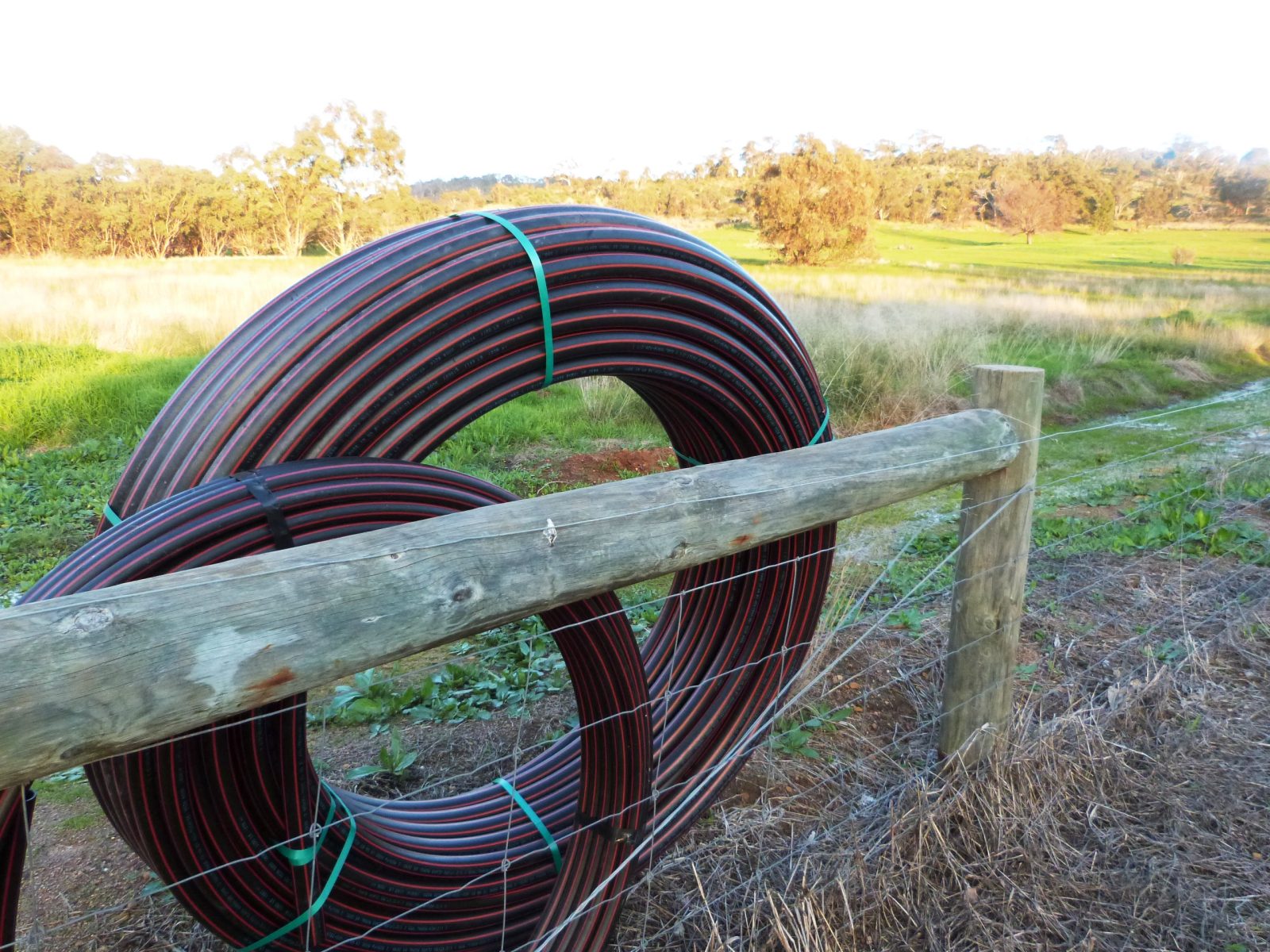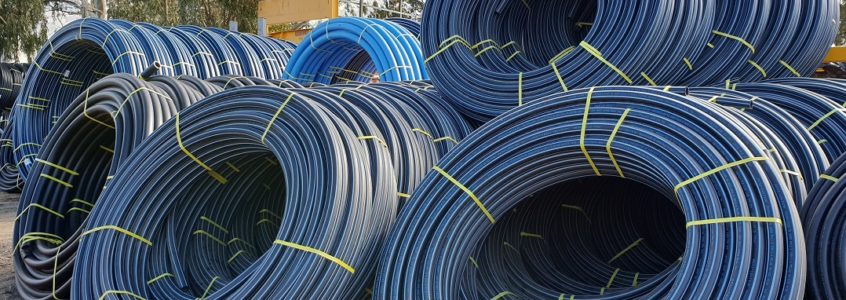Transporting water and other low pressure fluids in the Australian outback requires pipework that can withstand the harsh climate. Common materials used include galvanized steel, iron, copper, polybutylene, uplasticised polyvinylchloride and polyethylene. As well as being robust, the pipes need jointing that is strong yet flexible to be able to resist cracks and leaks. High-density polyethylene (HDPE) pipes and fittings are a popular choice because of their toughness, flexibility and environmental qualities.
What Is HDPE?
High-Density Polyethylene is a thermoplastic polymer resin made mainly from monomer ethylene with other small amounts of additives and hydrocarbon. The plastic is resistant to UV light, dilute acids and alkalis, some oils and types of grease, and alcohols. The base resin has a density between 0.944 – 0.965 g/cm3, giving it a high strength-to-density ratio. The polymer structure of HDPE has limited branching, where the grouping of the chemical components branch from the main linear chemical chain. This results in stronger intermolecular bonding than other lower density plastics, with a tensile strength of 0.20 – 0.40 N/mm². The high density also enables the material to function in temperatures ranging from ‒ 400 to + 80 °C, under low pressure conditions.
Is HDPE safe?
The manufacturing process of HDPE products may be hazardous, with polyethylene dust and vapours during moulding causing eye irritation if adequate safety precautions are not followed. Under excessive pressure, HDPE tears rather than shatters, avoiding the dangers of splintering shards.
However, the finished product is safe with many forms of HDPE widely used for packaging and containment in the food and beverage industry.
The Advantages of HDPE pipes and fittings
High-Density Polyethylene is lightweight and flexible, meaning it is easy to transport and install. With a low scrap value, it is less likely to be dug up and stolen than metal pipes. Once in-use, the properties of HDPE means that it doesn’t corrode, is chemical resistant and is not affected by mould, insect attack or rotting. The main advantage is its strength and robustness against volatile weather conditions. Being impact resistant, pipes made from HDPE are ideal for transporting water over long distances in harsh conditions. With the proper connections, such as Acu-Tech’s
rural poly compression fittings, water systems of HDPE piping last over 50 years with minimal maintenance.
The phasing-out of single-use plastics is gaining momentum and HDPE is one of the leading recycled plastics. With the capacity to be recycled up to 10 times, and retaining much of its strength and versatility, common recycled HDPE products include storage containers, plastic lumber, patio furniture, playground equipment and car parts.

Efficient Pipeline Connections
Acu-Tech have provided high-performance piping products for over 18 years, including HDPE pipes, fittings, joints, welders, ancillary items, hand tools, and other pipe equipment. Our HDPE Rural compression fittings and clamp saddles, made by Plasson, connect polyethylene pipes with an outside diameter ranging from ¾” to 2″. They are compatible with PELD, PEHD, PE40, PE80 and PE100 pipes complying with AS/NZS 4130 Series 1.
Our team of experts in fabrication, equipment hire, sales and maintenance provide excellent customer service for all your piping needs. Invest in innovative piping solutions at Acu-Tech. For enquiries, please contact us at
sales@acu-tech.com.au.
Disclaimer: As always with information supplied by Acu-Tech Piping Systems, we supply it as a guide in the interest of better understanding of technical properties of our products. However, the application of such information may involve engineering judgments which cannot be correctly made without intimate knowledge of all the conditions pertaining to a specific installation. Acu-Tech Piping Systems does not act as a consultant in this regard; the responsibility for the use of any information or advice contained herein rests solely with the user. It should not be used in place of a professional engineer’s judgment or advice, and is not intended as installation instructions. See full disclaimer at: www.acu-tech.com.au/privacy-policy/.








